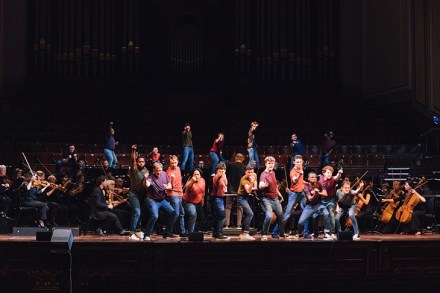Witty, clear-eyed and free of self-pity: Slowthai at Brixton Academy reviewed
Those who cherish the notion that the current prime minister really is ‘electoral Viagra’ should have paid a visit to Brixton last Friday evening to see what actual young people think about him. Before Slowthai — the young rapper from Northampton who ignored complaints about the toxification of political discourse by brandishing a dummy of Johnson’s severed head at this year’s Mercury Prize ceremony — even took to the stage, the 5,000 or so kids took up a chant of their own volition: ‘Fuck Boris! Fuck Boris!’ The Britain of Slowthai and his fans is not one in which anything can be overcome with a bit of Dunkirk spirit. The




